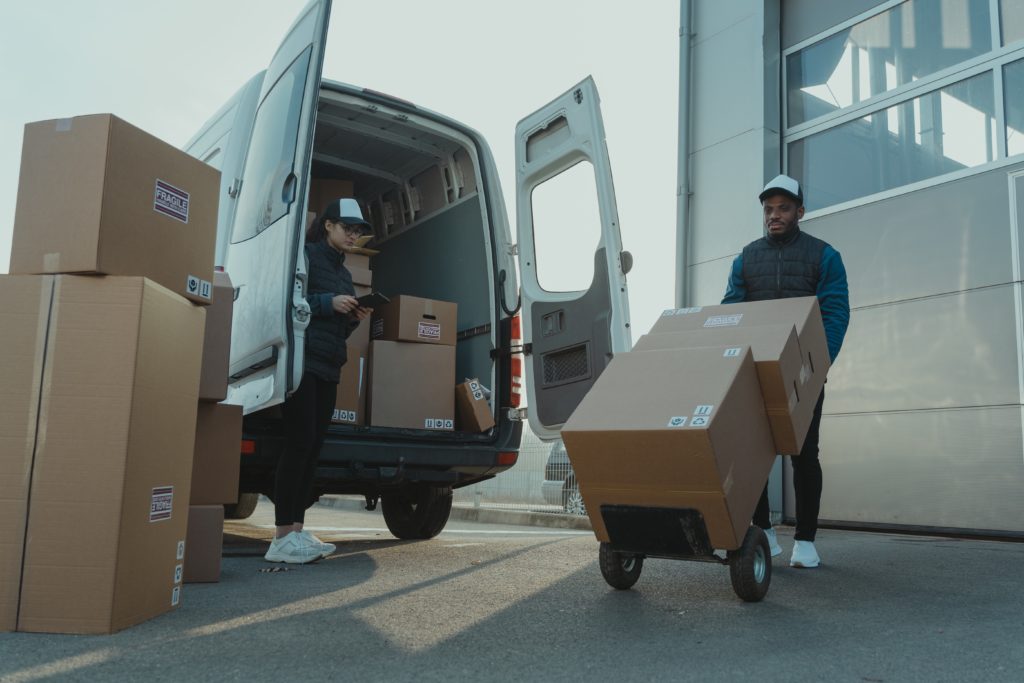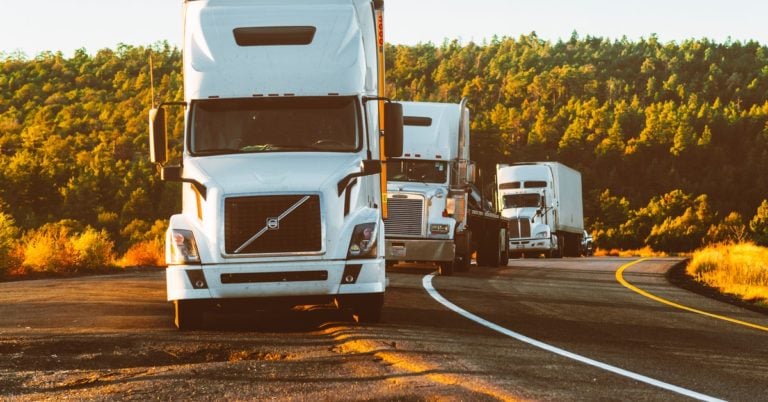Here it is: everything you ever wanted or needed to know about how to start a distribution business, in 10 easy steps. Here’s what you needed to hit the ground running!
If you want a career with a lot of glamor and acclaim, starting a distribution business may not be for you. However, starting a distribution business can be a good way to make a living while also providing an incredibly important service to help others run their businesses.
There’s so much to think about when starting any business, but especially with distribution, you have to find the right niche that can make your business successful.
Since time is money, here’s your quick-start 10-step guide to not just starting a distribution business, but knowing how to start a distribution business successfully.
Learn How it Works
The first step in starting a distribution business is gaining a sound understanding of everything that a distribution business does. Distribution companies essentially bridge the gap between manufacturers that produce goods and the retailers that will ultimately sell them.
Manufacturers typically don’t have the staff or desire to manage contracts with a countless number of retailers, and so they work with distribution companies that buy and store their products before they can be turned around and distributed to retailers. The distribution company is independent of the manufacturer, although they typically work closely and have a strong relationship with the manufacturer. The same is said of the retailers that are buying the products from the distribution company. In other words, the two biggest factors for how to start a distribution business are having a LOT of space and maintaining good business relationships.
A quick note here: not everyone looking to start a distribution business will have the right contacts and the right space. At every step of your journey, it’s a great idea to have a running contingency plan, just in case the worst happens. It’s also a good idea to start off by writing a basic business plan, to keep you anchored and focused when times get tough!
Find the Right Niche
Typically, distribution companies will specialize in a certain niche rather than working with a variety of manufacturers that produce different items. Starting a distribution business typically requires finding a niche ahead of time before launching the business.
This means doing a fair amount of research in order to find a gap in the market. Is there a manufacturer that is in need of a distribution company or isn’t satisfied with its current partner? Finding the right niche can also depend upon the location of a distribution company and the amount of space it has to store items that are fresh off the assembly line. Either way, selecting a niche usually comes before starting a distribution company.
Choose a Sales Model
There is more than one way to run a distribution company, so you will have options when it comes to making sales.
- Some may act as an importer and/or exporter, either importing goods from a foreign country and selling them or taking products made domestically and then exporting them out of the country.
- Others will operate as a broker that just arranges deals between buyers and sellers.
- Some distribution companies will operate a cash and carry business, selling goods to clients that pick them up from their warehouse location.
- Other companies will arrange delivery to retailers.
Obviously, it’s possible to mix and match these methods, although most distribution companies will choose to specialize in one.
Choose an Inventory Method
Along with picking a sales method, starting a distribution business also means picking an inventory method. One option is dropshipping: picking up products directly from the manufacturer and immediately turning around and selling them to retailers.
However, the more common model is the warehouse method, where products are stored in a warehouse until they’re ready to be sold (for which you’ll need to develop a solid inventory management process).
There will be pros and cons to explore with each method, but you must be clear about your preferred choice before starting a distribution business. This decision will decide whether or not you need a large warehouse, how many employees you need to hire, the duties those employees will be performing, as well as ensuring there is very little employee turnover as time goes on.
Find Your Space
Obviously, if you choose to have a warehouse to maintain your inventory, selecting the right location for your warehouse will be an essential part of starting a distribution business. As mentioned, the space you’ll need will relate to your chosen niche, which is why that should be locked down before committing to a warehouse location.
If you’ll be storing large items or doing a high-volume business, you’ll need more space. In other cases, either the volume or product is small enough to run a distribution out of a building the size of a small house. Either way, you’ll have to decide on the budget you have for your warehouse and whether it’s more feasible to buy a building or just lease it.
Get Your Paperwork in Order

Once you start to figure out how to start a distribution business from a practical standpoint, you’ll need to get your paperwork in order. This means getting your –
- business licenses
- tax identification number
- other permits you’ll need to operate based on local and state laws
You will also need to choose a name for your new business and have it officially registered. While you’re doing all of that, this is also a good time to take care of business insurance. You’ll likely need:
- workers’ compensation insurance
- general liability insurance
- other forms of insurance based on your chosen niche and your business model.
When in doubt, don’t be afraid to consult with a lawyer or experienced insurance agent who can help you to double-check that everything is in order to get your business off the ground.
Lock Down the Price Points
Before officially starting a distribution business, it’s important to get your price points locked in so that you can be upfront with what you’ll be charging retailers. It’s in the nature of distribution companies to low-ball their competitors in order to earn business.
However, keeping prices too low can put a lot of pressure on you to maintain a large client base. This may not always be viable for a new company. At the same time, you don’t want to sell yourself short. It’s not easy doing everything that a distribution company does. If you do it well, there’s nothing wrong with charging a fair price for your services.
Try doing some market research before starting a distribution company to figure out a fair pricing plan that can help you survive in the long run without selling yourself short by making your prices too cheap.
Connect with Retailers and Manufacturers
Naturally, this is one of the most important steps in how to start a distribution business. It’s all about connecting with the right manufacturers and retailers and negotiating contracts that are favorable for everyone involved.
Again, your chosen niche will help determine what manufacturers you end up working with. Meanwhile, there is a little more freedom and leeway with retailers. You can choose to focus only on local retailers or try to distribute more widely if you have the means to do so.
Of course, it’s all about forging good relationships with those retailers and then proving that you’re running a professional and reliable business, which is another important part of the equation when starting a distribution business.
Market Your Business
With any luck, you’ll start to develop positive word of mouth regarding your new business. But marketing is also a key part of how to start a distribution business and turn it into a success. After all, word of mouth can be a little slow, and retailers can be reluctant to trust a new company. You’ll need a marketing strategy that brings awareness to your business.
Unfortunately, this can be easier said than done. Consider using some of your startup money to consult with advertisers and marketers to help get your name out there so that you can win over new clients early and often after starting a distribution business.
Prepare for the Future
It’s not the “how to start a distribution business” you need to worry about: it’s how to run it once you’ve opened!
Some of the issues you need to think about include:
- If you eventually have employees, how will you manage their schedules and shifts?
- How will you train and onboard your employees, if they’re either deskless or remote workers?
- How will you keep your employees engaged and happy to work?
- On the flip side, how will you manage difficult employees if problems arise?
- How will you prepare for and manage any employee turnover?
These things can be tricky to anticipate in advance, so we advise you to think about all the possibilities for the future, and plan ahead accordingly!
Most distribution business owners turn to Connecteam, the all-in-one employee app, to make sure they get their business started and running the right way.
That’s because it’s
- Super easy to use
- Helps you to scale your business
- Has award-winning customer service
- Easily customizable and super affordable
- Has a solid set of features to help build your business
Plus, there’s a forever-free plan, and free trial of all paid plans.
The Bottom Line: Starting a Distribution Business the Right Way
Starting a distribution business and knowing how to run it successfully are two completely separate things, but they don’t have to be!
The best way to hit the ground running is to find the right digital tool to manage all your operational and employee needs, because if you’re working in the business, how will you find time to work on the business?
Using an all-in-one app, such as Connecteam, will get you off to the right start, and help you grow and scale a successful distribution business both now and in the future!



